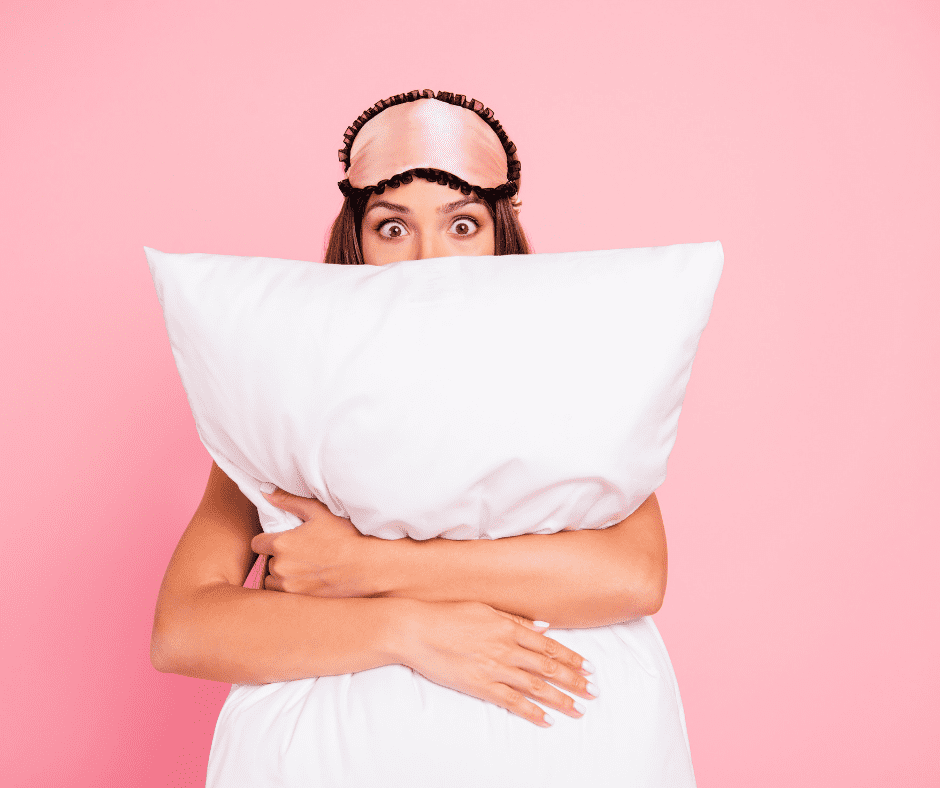If you want to lose weight and/or maintain your healthy weight loss, like many people, you may think that diet and exercise are the two most important factors driving your success. However, based on lots of research, it turns out that sleep is equally as important. And sleep often doesn’t get enough credit!
Sometimes you sleep when you don’t want to, sometimes you want to sleep but you can’t. And some people end up taking medication to achieve a full night of sleep. You see, sleep does more than just rejuvenate us. It plays an important role in your mental, emotional, and physical health.
But what about its role in weight gain?
Science has found hormonal links between sleep and weight gain. When there is insufficient sleep, your body produces more of the hormone called ghrelin and less of the hormone called leptin. Coincidentally, these two hormones regulate your appetite.
Ghrelin makes you hungry and leptin tells your brain that you are full. So, when you don’t get enough sleep, you feel hungrier (because there is more ghrelin around), and you have less awareness of feeling full (because there is less leptin around).
Here are some general recommended sleep guidelines by the National Sleep Foundation:
- Teenagers (14-17): 8-10 hours
- Young adults (18-25): 7-9 hours
- Adults (26-64): 7-9 hours
- Older adults (65+): 7-8 hours
But here is the reality:
- 35% of Americans don’t get the recommended seven to eight hours of sleep each night.
- Americans currently get on average 6.8 hours of sleep each night.
- In 1910 the average person slept 9 hours a night.
- Roughly 20% of Americans have a sleep disorder.
- 97% of teenagers get less than the recommended amount of sleep.
- 7 out of 10 college students don’t get adequate sleep.
Let’s get into the quality of your sleep. You see, there are 4 stages of sleep. The first 3 are called non-Rem sleep and the fourth is called REM sleep. It takes about 90-110 minutes to go through the four stages, and then it starts over again Here is an overview of each stage:
- Stage 1 is the lightest stage of sleep. It is often defined by the presence of slow eye movements and is the drowsy stage which can be easily disrupted. Muscle tone throughout the body relaxes and brain wave activity begins to slow from that of being awake. Occasionally people may experience jerks or abrupt muscle spasms and may even experience sensation of falling while drifting in and out of Stage 1.
- Stage 2 is a deeper stage of sleep. Awakenings do not occur as easily as in Stage 1 sleep and the slow-moving eye rolls stop. During this stage, brain waves continue to slow, body temperature starts to come down, and your heart rate begins to slow.
- Stage 3 is the most restorative stage of sleep. Awakenings are rare and often it is difficult to awaken someone in Stage 3 sleep. Sleepwalking, sleep talking and night terrors occur during this stage of sleep.
- Stage 4 is your REM sleep also know as rapid eye movement. It is most known as the dreaming stage. Eye movements are rapid, moving from side to side and brain waves are more active than in Stages 2 & 3 of sleep. Awakenings can occur more easily in REM. Being woken during a REM period can leave you feeling groggy or overly sleepy
As I said earlier, sleep is very important for weight management. If you are having problems getting enough sleep, try the following tips:
- Establish a regular bedtime routine. A routine will signal your body that it’s time for sleep.
- Try relaxation techniques like deep breathing and relaxation.
- Don’t exercise before bedtime.
- Keep your bedroom dark and cool.
- Limit your caffeine intake.
- If you are troubled about something, get up and write about it until you become bored with the subject, instead of lying in bed and focusing on the problem.
- Don’t try to sleep unless you’re sleepy.
- If you don’t fall asleep within 30 minutes, get out of bed and read, or do an activity that you find relaxing. Your bed needs to be associated with sleep, not frustration.
- Don’t go to bed hungry. Eat good quality proteins in the evening to help curb hunger.
- Don’t use alcohol to promote sleep. Alcohol may help you feel sleepy after you drink it, but it actually interferes with REM sleep causing you to feel more tired in the morning.
- Avoid long naps. Napping is OK for many people if the naps are short—30 to 45 minutes—and don’t happen after mid-afternoon.
- Finally, if you have chronic insomnia, see a counselor who can provide Cognitive Behavioral Therapy techniques.
At Physicians Premiere Weight & Wellness Center, my team and I always address sleep issues and share the proper tips and guidance so you can maximize your weight loss success.
If you are ready for a good night’s sleep and to get started on your successful weight loss journey, please give us a call at 703-783-5683.





